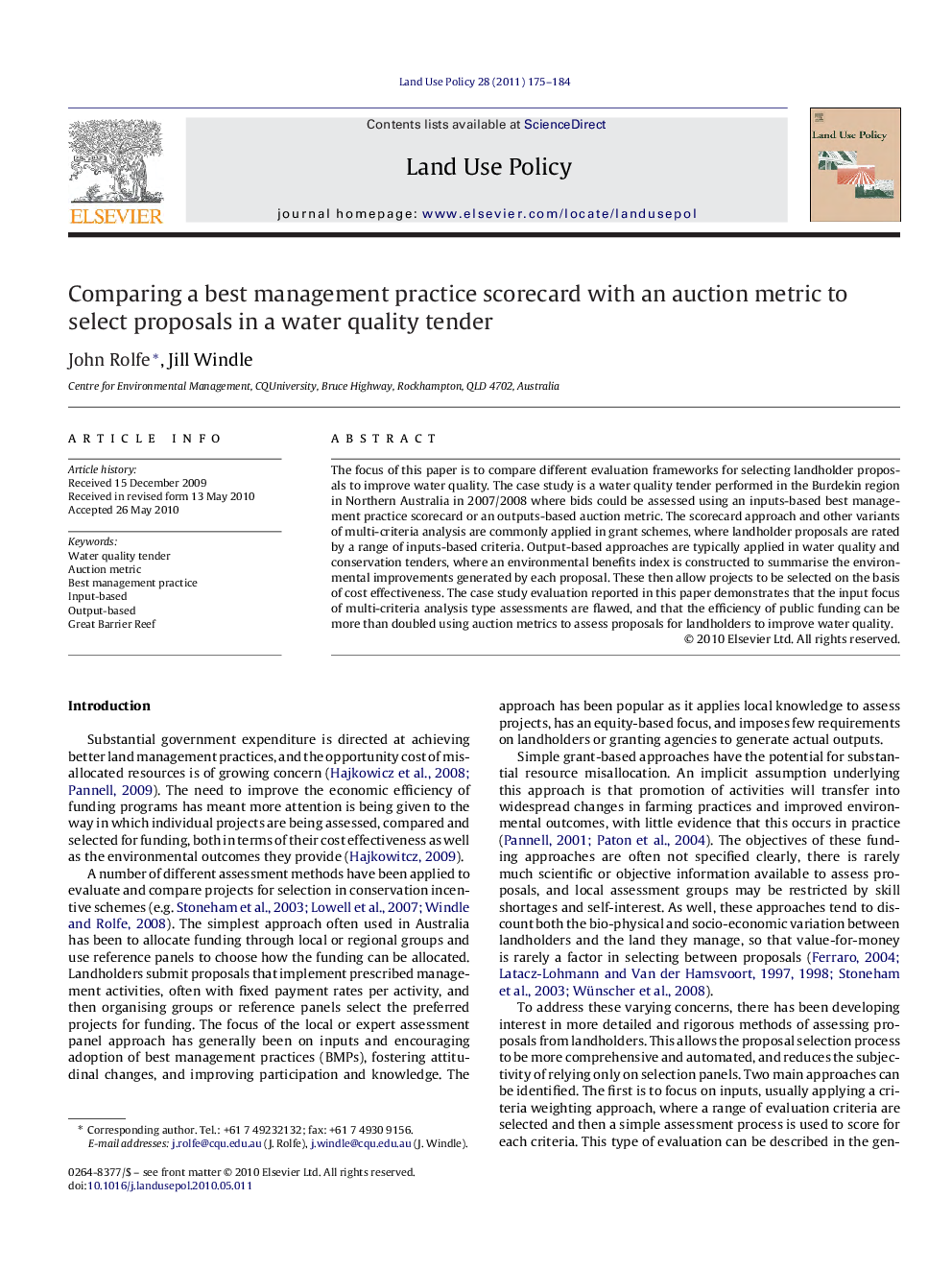| Article ID | Journal | Published Year | Pages | File Type |
|---|---|---|---|---|
| 93439 | Land Use Policy | 2011 | 10 Pages |
The focus of this paper is to compare different evaluation frameworks for selecting landholder proposals to improve water quality. The case study is a water quality tender performed in the Burdekin region in Northern Australia in 2007/2008 where bids could be assessed using an inputs-based best management practice scorecard or an outputs-based auction metric. The scorecard approach and other variants of multi-criteria analysis are commonly applied in grant schemes, where landholder proposals are rated by a range of inputs-based criteria. Output-based approaches are typically applied in water quality and conservation tenders, where an environmental benefits index is constructed to summarise the environmental improvements generated by each proposal. These then allow projects to be selected on the basis of cost effectiveness. The case study evaluation reported in this paper demonstrates that the input focus of multi-criteria analysis type assessments are flawed, and that the efficiency of public funding can be more than doubled using auction metrics to assess proposals for landholders to improve water quality.
